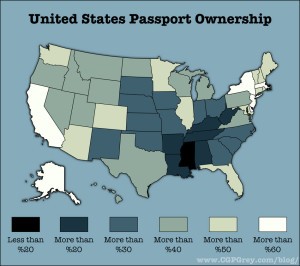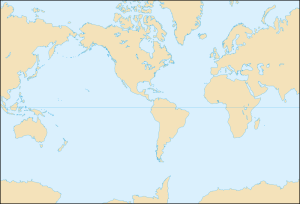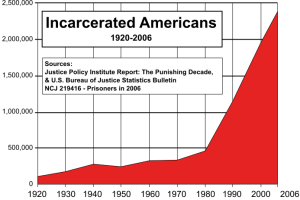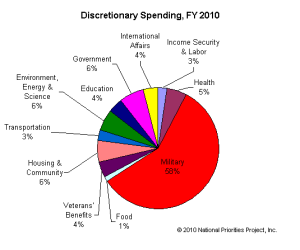‘Murica. The greatest country in the world, that ever was or will be. Right? Well, that’s what plenty of Americans think. Oddly enough, they’re often the ones who have no understanding of the world, inside American borders or out. Even the chauvinistic use of the term America is problematic to begin with, not to mention the endless flag-waving and vainglorious boasting as to our imagined greatness. We’re like a C+ jock calling himself the smartest kid in school.

Sadly, it turns out that a lot of what people say about the United States turns out to be quite accurate. Mediocrity has long been our station, and for quite some time, our laurels made for a great resting place. But it’s not the 1950s anymore. The rest of the world is catching up––scientifically, economically, educationally––and unless we make some major systemic changes to the way we do business, they’re going to leave us in the dust. In some cases, they already have. Thanks, CERN. You damn atom-smashing bastard.
So, do I hate America? No, far from it. But we have some obscene problems that our collective ego largely refuses to acknowledge, or that entrenched opposition refuses to change. We’re not #1 in any category worth winning, and a lot of the worst stereotypes about Americans are embarrassingly true.
It’s not an insult, guys. It’s a call to action. We’ve got 99 problems, and a solution to none.
Allow me to name just a few…
The unfortunate American stereotypes list:
1) We’re FAT

If there’s anywhere to start, it’s right here. Our expanding waistlines have been the subject of global ridicule for decades, with our weapons of mass consumption fed with bottomless obesity fuel, and our luxurious domestic throne rooms of TV appreciation and ever-present automobile infrastructure at the ready to remove any and all semblance of physical activity from our daily routine.
A couple fun facts: 68% of Americans were overweight or obese in 2012, and since 1960, we’ve packed on an extra 24 pounds each, causing endless problems related to diabetes, heart disease, fuel consumption, and airplane seating size standardization. Somehow that $60 billion we spend every year on weight loss products is getting us nowhere.
When I was in Taiwan, one of many nations for whom portion control and lack of trans-fats are simply non-issues, I was asked if I thought the humans in Wall-E were a realistic portent of our inevitable fate. They thought it was silly to think humans would end up as severely fat, immobilized, and digitally entertained as the characters depicted in the film…whereupon I informed them that a certain percentage of our population has already achieved such a feat.
Asia in general has significantly lower rates of obesity. Just for a quick comparison, our 33.8% obesity rate is pretty darn easily beaten by Japan’s 3.5%. Get it together, America.
Minor consolation? Someone overtook us. But our current 2nd place fat trophy is no reason to cheer. And I expect our size and sedentary vegetating often contribute to another particular sort of laziness…
2) We barely travel

We’ve all heard the embarrassingly low statistics concerning the percentage of Americans holding passports, but at this point, it’s over 30%. Still incredibly lame, and far behind the UK’s 80%, but a lot better than you may have heard.
But I think that misses the point. It doesn’t matter how many people have passports, but how many use them. And according to a (somewhat outdated) study that ranked countries according to number of trips abroad, the USA is in a respectable 3rd place. Woo hoo!
But that’s by sheer numbers, not per capita. Germany was #1, with 86.6 million trips abroad…compared to a population of 80 million. Compare that to the 58 million trips that Americans took abroad, and our 300 million people, and they turn out to be quintuple the travelers we are.
We’ve got all sorts of excuses, of course. We live far away. Our economy sucks. And we barely speak our own language, much less others.
And all that would make sense, except when you take a look at Canada, where a respectable 60% hold passports, and according to tourist receipt data from 2009, they spent about 1/3 as much as (USA) Americans did on travel, but with only 1/10 the population, which makes them approximately triple the travel junkies we are. And both are in North America, so I don’t think problems like expensive plane tickets are good enough excuses.
A frequent argument put forth is that travel expenditures correlate closely with income and proximity to international borders, and that’s true enough, except when our Canadian buddies are upstaging us 3 to 1. I mean seriously, guys. Who the hell doesn’t want to see the world?!?!!
And you might think travel is a frivolous expenditure that doesn’t count as a necessity of life. Except that it exacerbates the next problem…
3) We’re ignorant of the world

I won’t trot out the parade of ignorant Americans saying silly things about whether Europe is a country or Africa is a planet or whatever. I’m sure you’ve seen ’em. And this is to say nothing of the Americans who don’t know the Earth goes around the sun.
What bothers me far more than mere stupidity is the cultural prejudice that festers from this ignorance, and keeps millions of Americans irreparably distrustful of the outside world. We’re constantly in fear of a rising China or resurgent Soviet empire or socialist European dictatorship or reincarnated Caliphate, or whatever the hate target is for that particularly decade. You can tell which racial group is the big bad wolf at the time because they’re the bad guys in all the movies. Hollywood is literally chronicling our xenophobia before our very eyes.
I wish I could find the source, but several years ago, a few Muslims went on a cultural exchange tour, intended to increase communication and understanding between Christians and Muslims, at a time when the media continues to push some of us into thinking we’re destined for some inevitable clash of civilizations. And Christian attendants actually asked “do Muslims love their children?”
And the price for such ignorance? Unchecked ease of political manipulation. While knowledge remains a magnificent way to spot a liar, it remains childishly easy to manipulate an ignorant voting bloc, which is a big reason why Americans need to travel more. We’d know the whole rest of the modern world does health care better, or that Amsterdam isn’t a cesspool of drug-addled violence, or that public transportation systems don’t have to suck. But too few venture beyond our borders, which is why the last two elections saw candidates for some of the highest offices in the land claiming on TV that Russia is still our arch-nemesis, and almost half the country voted for them.
Ignorance happens everywhere, sure. But in a country so well-connected with the outside world, and with a communications infrastructure that allows us to consume seemingly any cultural creation the world can produce, ignorance is not an accident. It’s a choice. And many of us make it every day.
If you’re not exploring the world around you, you’re destroying your country.
4) We’re scientifically illiterate

Okay, I lied. I won’t give us a free pass on this one. We don’t deserve it. The country that flew to the moon still has 20 million people that believe it was faked.
A few fun facts about American scientific flailing:
- 34% of Americans believe in ghosts.
- 18% still believe the Sun goes around the Earth.
- 32% think stem cell research is morally wrong, but only 20% actually know what stem cells are.
Sigh. And it can only become increasingly problematic to maintain this level of ignorance. At no point in our future will scientific literacy become less important. The more we invent and discover, the more we’ll need to know what the hell is going on. If we haven’t even caught up with the discoveries of Copernicus, how can we be expected to handle all those flying cars we’ve always wanted?
But we might not be able to afford them anyway…
5) We’re rich…ish

Some of us are, anyway. Income inequality has become a hot-button political issue lately, and for good reason. The chasm between rich and poor has grown to match the level of the Gilded Age of the 1920s, right before the most horrific economic collapse in our history. The super-rich of the 0.01% control a greater share of wealth than at any time in recorded history, while their taxes are among the lowest they’ve been in our lifetime, which all adds up to make American income inequality the most severe of any developed country.
Now you might think that’s fine, since they must have worked hard for all that wealth, right? Well, not those six Walmart heirs, who control as much wealth as the bottom 40% of Americans, and certainly not in the case of all those politically-derived tax breaks and offshore bank accounts that allow rich people to build massive amounts of wealth while selling out their own country at the same time, but even aside from all that (which I think is pretty awful to begin with), there’s a direct correlation between income inequality and everything bad in the world.
It would be one thing if they were working hard and reaping deserved rewards, but when plenty of other people are working hard but not even managing to break out of poverty-level wages, something’s gotta give. And I think it should be rich-people tax evasion scams, not child poverty nutrition programs.
And, for those who think billionaires paying an extra tax percentage or two will cause our democracy to collapse into a socialist dictatorship, it’s probably worth knowing that when our country was fighting World War II, tax rates on the top earners reached 94%. Is it really so much to ask our new nobility to contribute to their country in a time of need?
Yet such modest suggestions are met with fervent, ideological, almost religious opposition. Speaking of which…
6) Religious fanaticism runs deep

Now allow me to begin by pointing out that I have no problem with people practicing their religion. I strongly support absolute freedom thereof. Unfortunately, a third of Americans do not.
We have reached the point that 34% of Americans would favor the establishment of Christianity as the state religion.
It’s funny how vocal the debate can get over whether or not the United States was founded as a Christian nation, since the Treaty of Tripoli literally declares the exact opposite and bears the signature of President John Adams. Seems like it would be over and done with, right?
Nope. The debate rages on. And although religious participation is generally down, with increasing numbers of Americans (particular younger ones) declaring no religious affiliation at all, the number of Americans claiming that “Christianity is a very important part of being American” increased from 38% to 49% from 1996 to 2004.
So while it’s not entirely accurate to call the United States “religious,” it’s perfectly accurate to claim this for half the country, whose opinions have become so deeply entrenched that a third of Americans apparently want to see the country transformed into a Christian theocracy. We’re getting split right down the middle, and religion is the wedge. One of them, anyway.
Good thing all that religious fervor must be keeping everybody morally righteous though, right? RIGHT!?!?
7) We have more prisoners than anyone else

I find it rather odd that Americans talk about Americans like we’re the greatest people on the planet, while simultaneously locking up the highest percentage of our citizens of any country on the planet. How great can we be if we have more criminals than anywhere else?
Yet for many Americans, this isn’t even a problem. They view record-setting incarceration rates, mandatory minimum sentencing, zero-tolerance drug offense policies, and the $75 billion annual tab as the solution, failing to see how these astronomical imprisonment rates only serve to exacerbate the existing problem.
We turn non-violent offenders into inmates, whose criminal record then guarantees employment challenges. And what’s a former criminal to do when the clean life won’t pay the bills? Turn to crime, of course. And so the term “correctional facility” is just a lie: Within 3 years of release, about 43% of inmates end up back in prison.
You might think those repeat offenders deserve it, but in Norway, it’s just 20%. So it’s not just the offenders that get themselves back into the system. It’s equally a result of the system itself.
And thus we could save billions, while drastically cutting crime rates at the same time, but instead we’re just spinning along on our imprisonment hamster wheel, all the while suffering, and paying for, the enormous consequences. Such as…
8) Our gun crime is out of control

There is no modern country on the planet that has the same problems with gun violence as the United States. In 2006, over 10,000 Americans died due to gun-related deaths. In Japan? Two.
Sadly, it’s not just murder. Gun-related suicides actually happen more often than gun-related homicides. In 2010, the ratio was 1.75 to 1. And I’m all for allowing gun ownership for the sake of self defense, but when most of those deaths are self-inflicted, it’s really not a matter of defense, is it?
The cycle is depressingly self-defeating; every school shooting leaves the public terrified, and clamoring for reasonable gun control legislation. Fearing tyrannical regulation, gun lovers flood the gun shops and stock up on new firearms. And since the gun lobby blocks even the most reasonable of new regulations, no progress is made…except for the massive addition of newly circulating firearms, thus enabling yet more school shootings (but if you’re looking for a strategy, this crazy idea might just work).
And yet…Americans think other countries are dangerous.
9) Our military budget is killing us

Speaking of massive stockpiles of deadly weaponry, the United States consistently outspends everyone else on the planet on military expenditures, exceeding, as of 2013, the next 11 countries combined. It would be one thing if we were at war with all of them simultaneously, but plenty of them are allies. Awesome.
More fun facts? The United States accounts for about 40% of global military expenditures, spending about 6-7 times as much as China, the next biggest spender. And although the Department of Defense has accounted for about 20% of the federal budget for the last several years, other estimates, which include defense-related spending beyond simply the Department of Defense, put the number at a staggering 58%.
Even so, no discussion of reigning in government spending ever includes a reduction of military might. One might think it would be simple to suggest we outspend the next eight countries combined, instead of the next eleven, for example. But it’s just so easy to say “weakening America,” “grave threat of terrorism,” and “support our troops,” that no politician seems capable of mustering the intellectual prowess to ask “could more lives be saved if we spend those billions elsewhere?”
And while I have nothing but respect for the soldiers who put their lives on the line for the sake of their country, I have nothing but disdain for the politicians who put soldiers’ lives on the line for the sake of their political career. And judging from the vast number of 3rd world countries we’ve invaded or bombed that pose absolutely no threat to us whatsoever, we seem to have quite a few of them.
The trouble is perhaps best phrased by Abraham Manslow, who once said:
“I suppose it is tempting, if the only tool you have is a hammer, to treat everything as if it were a nail.”
So we keep on banging away.
10) We don’t know what “patriotism” is

This is a big one for me, as it tends to eclipse any other problem, by facilitating the existence of them all.
I’ve written before about the mentality of certain Americans who think it’s “very special” to be American, but whose only explanations consist of factors present in hundreds of countries. Democracy, for example, or freedom of speech. Or people who refuse to travel to other countries for fear of their safety, including those with significantly lower crime rates, or who believe American citizenship somehow entitles them to the favorable economic circumstances our country currently enjoys.
And though it would be one thing for sheltered Americans to continue ignorantly wallowing in the mediocrity that is the current chapter in the history of the United States, it’s another thing entirely when that ego merges with assumed privilege.
A disturbingly popular view has emerged in recent years, which declares that the United States has a unique privilege in the world, which allows it to pursue whichever goal it desires, without regard to its effect on citizens of other countries. All because America is the “greatest country in the world.”
I once witnessed an American pack up his things and refuse to speak further with a Swiss man who (politely) suggested the United States should take into consideration how its actions affect the populations of other countries. And when the Swiss man left the room, the American said “I don’t like that guy.” For the crime of suggesting considerate behavior.
And this is no fringe view. When a recent political candidate recommended following a foreign policy based on the Golden Rule, the audience shouted him down. This country literally witnessed the voters and leadership of a major political party revolting against the basic concept of morality.
If you ask me, greatness doesn’t provide leeway for inconsiderate behavior. In fact it does the exact opposite. No one has ever seriously declared “he’s a great person, so he can bomb other people.” And yet somehow it’s perfectly acceptable…to certain people, anyway…to provide this privilege to an entire country.
That isn’t patriotism. It’s narcissism, plain and simple. And it’s blinding us from recognizing or solving the massive challenges we currently face.
So is America in decline?

I find it be rather odd that people even bother asking whether the United States is a nation currently in decline, when it’s so indisputably accurate. We’re in serious trouble, and we won’t get out of it by pretending it’s all good.
When considering the seriously entrenched political divisions, which have only been exacerbated in the last decade or so, combined with the rising prevalence of culturally split news consumption, which forms a bubble into which no conflicting opinions may enter, I think it’s safe to say we’re nearing a breaking point. The country is being split in two, and it’s not entirely out of the question to expect that at some point, it’ll snap in half. Or perhaps several pieces, forming a patchwork of independent states, each a mere shadow of its cohesive ancestor.
Are we doomed to such a fate? Maybe, maybe not. But if we’re ever going to reclaim the mantle of “greatest country in the world,” whatever that means, we’ll have to recognize just how far this nation has fallen.





I have one American stereotype that is NOT true: “Americans are rude!”
My parents recently took a cruise to Italy and stopped by a few other European countries along the way. They say that all their lives (in America) they’ve been hearing a stereotype that “Americans are rude” compared to other cultures. And now that they’ve taken their vacation, my parents say: This stereotype is a lie! …Not because Americans aren’t rude (since in many cases we are), but because the citizens of other countries are RUDER! Attribute this to a false sense of superiority, I guess….?